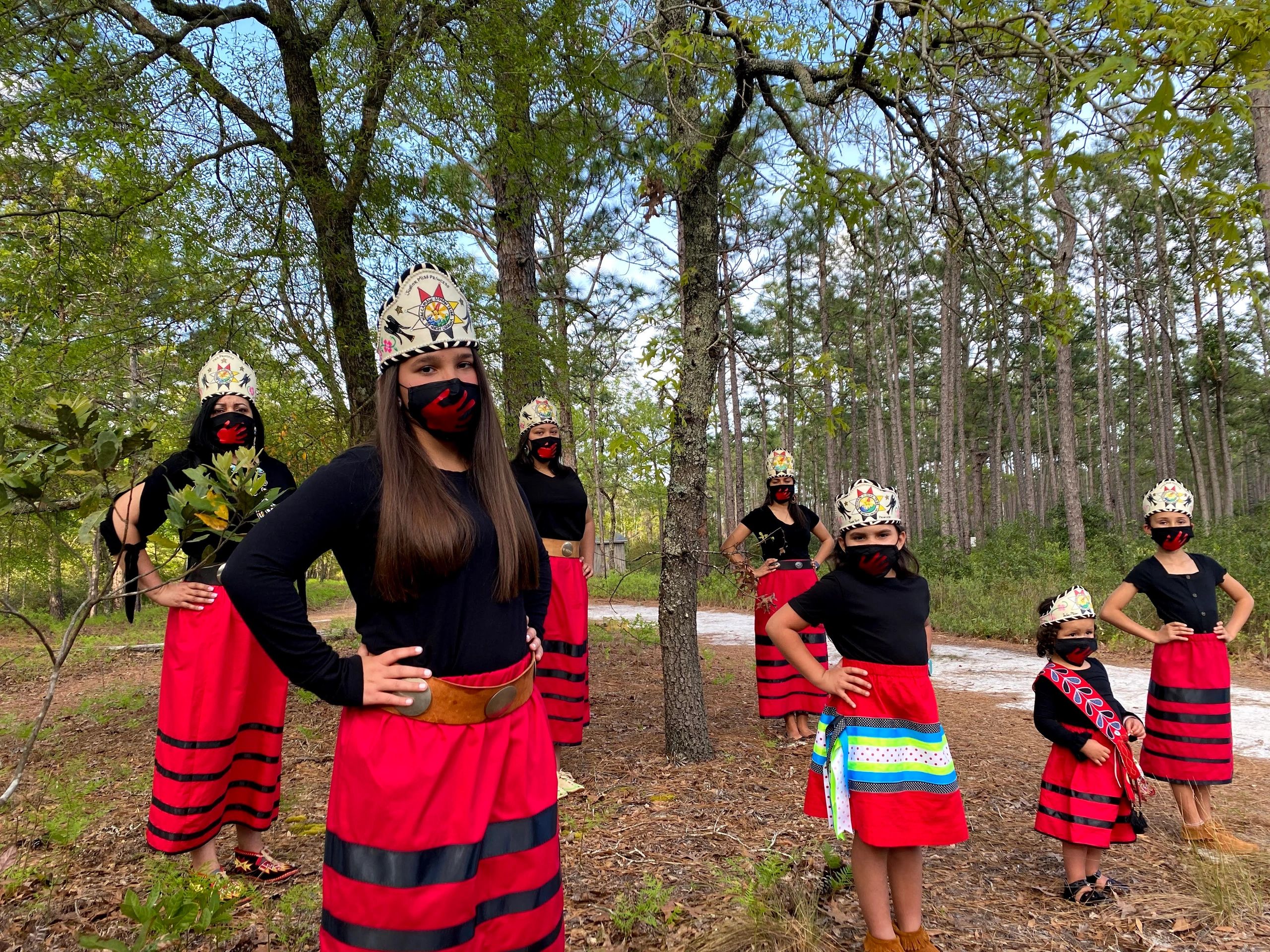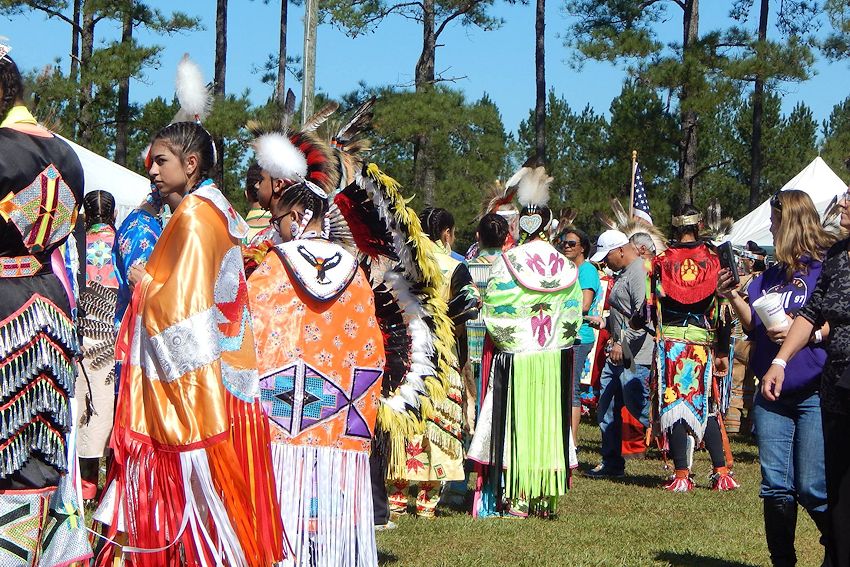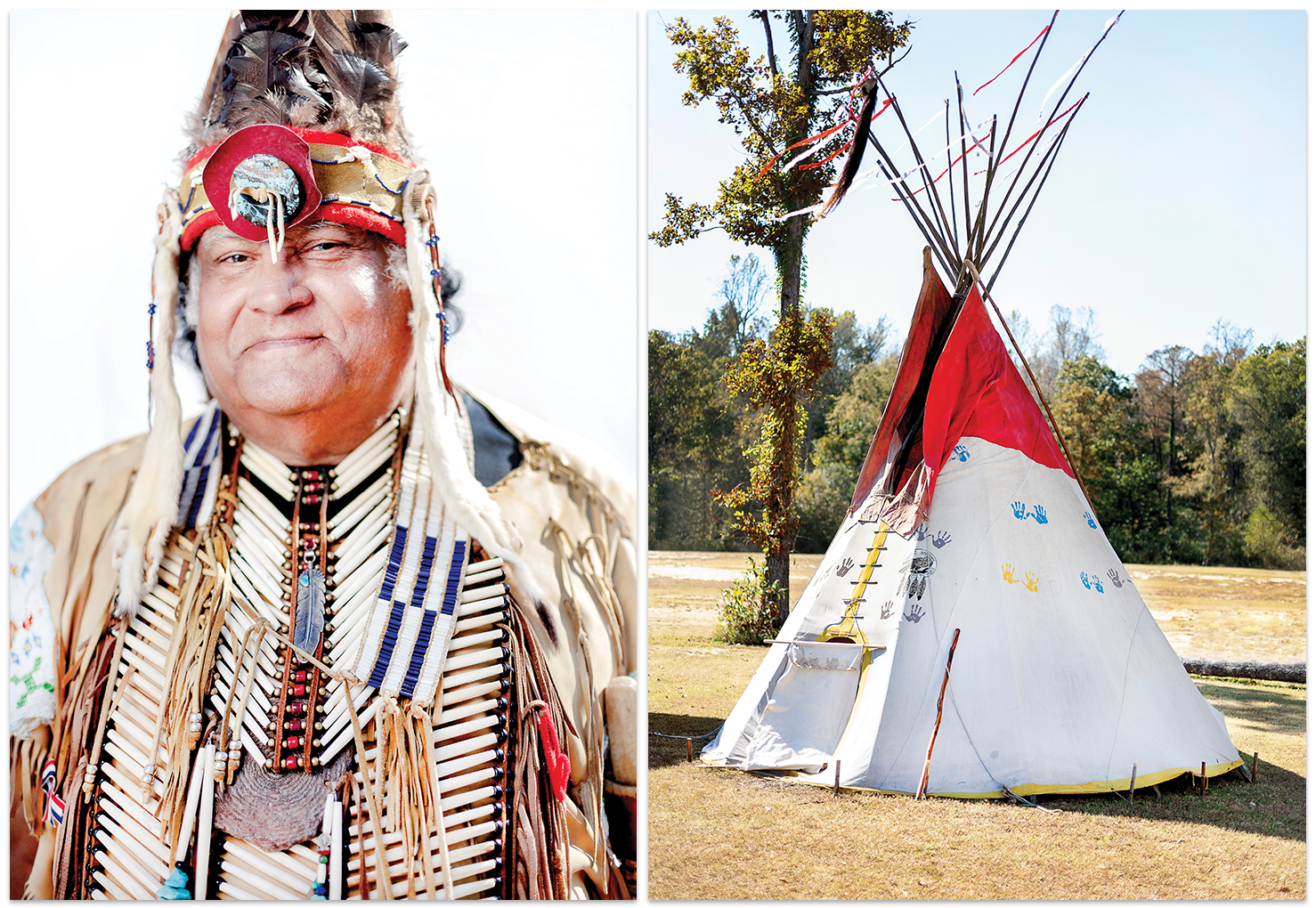
Whispers from the Water: The Enduring Spirit of the Waccamaw Tribe
In the verdant embrace of southeastern North Carolina, where the cypress knees rise from the dark, tannin-stained waters of Lake Waccamaw, a story of profound resilience and cultural tenacity unfolds. This is the ancestral homeland of the Waccamaw Tribe, a people whose history is as deep and winding as the waterways they have navigated for millennia. Their narrative, though often overlooked in the broader American tapestry, is a powerful testament to survival, adaptation, and an unwavering commitment to identity in the face of immense historical pressures.
For generations, the Waccamaw have lived in intimate communion with their environment, particularly the unique ecosystem of Lake Waccamaw – one of the most biologically diverse lakes in the world, home to species found nowhere else. This deep connection to the land and water, revered as sources of sustenance, spirituality, and cultural memory, forms the bedrock of their identity. Before European contact, the Waccamaw were a thriving Siouan-speaking people, part of a larger network of Indigenous communities across the Carolinas. Their sophisticated societal structures, rich oral traditions, and sustainable practices allowed them to flourish, living off the bounties of the forests, rivers, and the eponymous lake.
The Echoes of Conflict and Survival

The arrival of European colonizers in the late 17th and early 18th centuries irrevocably altered the Waccamaw’s world. Like many Indigenous nations, they faced the devastating trifecta of disease, land encroachment, and violent conflict. The pressures mounted as settlers pushed further inland, disrupting traditional hunting grounds and trade networks. This escalating tension culminated in the Waccamaw War of 1718, a pivotal, yet often under-recognized, chapter in their history.
Triggered by land disputes and colonial aggression, the Waccamaw, alongside their allies, fiercely resisted the encroaching forces. While the war ultimately led to significant losses and displacement for the tribe, it did not lead to their annihilation. Instead, it marked the beginning of a long period of strategic adaptation. Many Waccamaw chose to retreat into the dense swamps and forests, living "off the grid" to protect their families and cultural practices. Others integrated into existing communities, sometimes adopting new names or concealing their heritage to avoid persecution, while secretly maintaining their traditions.
This period of "going underground" was not one of disappearance, but of profound resilience. It was a time when Waccamaw identity was sustained through whispers around campfires, through the passing down of stories, songs, and knowledge from elders to children, often in the quiet safety of their hidden enclaves. "Our ancestors faced immense challenges, but they never truly left this land," a contemporary Waccamaw leader might observe. "They adapted, they survived, and we are their living legacy." This deep-seated resilience is a defining characteristic of the Waccamaw people, underscoring their ability to persist against overwhelming odds.
The Long Road to Recognition and Reaffirmation
As the centuries progressed, the Waccamaw maintained their distinct community, though their existence often went unacknowledged by the wider world. The 20th century, however, brought a renewed push for visibility and formal recognition. In 1983, after decades of advocacy and cultural revitalization efforts, the Waccamaw Siouan Tribe achieved state recognition from North Carolina. This was a monumental step, affirming their status as an Indigenous people within the state and providing a platform for self-governance and cultural preservation initiatives.
State recognition, while crucial, is distinct from federal recognition, which offers a different level of sovereignty, access to federal resources, and a government-to-government relationship with the United States. The Waccamaw Tribe continues to pursue federal recognition, an arduous and often frustrating process that demands extensive historical documentation and genealogical proof. For many Waccamaw, federal recognition is not just about resources; it’s about justice, about having their inherent sovereignty fully acknowledged by the nation. "Federal recognition isn’t just about money; it’s about justice, about being seen as who we are – a sovereign people," a community elder might explain, encapsulating the deep significance of this ongoing quest.
The tribe’s headquarters, located in the St. James community near Lake Waccamaw, serves as the heart of their modern governance and cultural activities. Here, the Waccamaw Tribal Council works tirelessly on behalf of their people, addressing issues ranging from economic development and education to healthcare and environmental protection. They strive to create a sustainable future for their members while honoring the traditions of their past.
A Vibrant Cultural Heartbeat

Despite the historical pressures to assimilate, the Waccamaw have maintained a vibrant cultural identity, rooted in their ancestral traditions and connection to the land. One of the most powerful expressions of this cultural pride is the annual Waccamaw Siouan Powwow. Held every October on their tribal grounds, the Powwow is a spectacular celebration of Indigenous culture, bringing together tribal members, relatives, and visitors from across the country.
The Powwow is a feast for the senses: the rhythmic beating of drums, the soaring voices of singers, the mesmerizing dance of regalia-clad participants, and the aroma of traditional foods. It is more than just a festival; it is a sacred gathering, a space for spiritual renewal, community bonding, and the transmission of culture to younger generations. "The Powwow is our heartbeat," a cultural preservationist might declare. "It’s where our children learn who they are, where our elders share their wisdom, and where we all remember our connection to those who came before us." It serves as a powerful reminder that Waccamaw culture is not a relic of the past, but a living, breathing entity, continually evolving while staying true to its roots.
Efforts to preserve and revitalize the Siouan language, though largely dormant, are also underway, with tribal members working to document and learn ancestral words and phrases. Traditional arts and crafts, such as basketry and storytelling, are actively promoted, ensuring that these vital aspects of Waccamaw heritage continue to thrive. The unique ecosystem of Lake Waccamaw itself remains a central focus of cultural and spiritual reverence. The alligator, a powerful and ancient inhabitant of the lake, is often seen as a symbol of the Waccamaw’s enduring strength and deep connection to their environment. "The lake is more than just water; it’s our history, our sustenance, our spirit," an elder might reflect, highlighting the profound significance of their ancestral waters.
Challenges and Aspirations for the Future
Like many Indigenous communities, the Waccamaw Tribe faces a unique set of challenges in the 21st century. Economic development remains a priority, as the tribe works to create sustainable opportunities for its members, addressing issues of poverty and unemployment. Access to adequate healthcare and quality education are also critical concerns, with the tribe often advocating for culturally sensitive programs that meet the specific needs of their community.
Land rights continue to be a complex issue, as the tribe seeks to protect and reclaim ancestral lands. Environmental protection of Lake Waccamaw and its surrounding areas is also paramount, safeguarding the natural resources that are so integral to Waccamaw identity and well-being. Furthermore, engaging and empowering the youth is a constant endeavor, ensuring that the next generation remains connected to their heritage and prepared to lead the tribe into the future.
Despite these challenges, the Waccamaw Tribe looks forward with optimism and determination. Their journey is one of continuous affirmation, a refusal to be erased or forgotten. They are actively building a future that honors their past, strengthens their present, and secures the well-being of generations yet to come. Through education, economic initiatives, and the vibrant celebration of their culture, the Waccamaw are ensuring that their voices are heard and their story continues to be told.
The whispers from the water around Lake Waccamaw carry not only the echoes of ancient traditions but also the determined spirit of a people who have endured, adapted, and thrived. The Waccamaw Tribe stands as a powerful symbol of Indigenous resilience, a testament to the enduring human spirit’s capacity to maintain identity, culture, and community against all odds. Their journey is far from over; it is a living, breathing narrative of a people deeply rooted in their land, forever looking towards the horizon with hope and unwavering strength.


